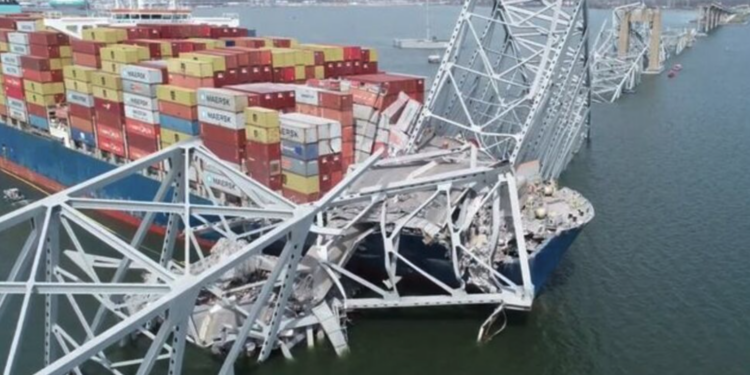
The collapse of Baltimore’s Francis Scott Key Bridge is posing a significant threat to the intricacies of the global supply chain, particularly automobile imports which could have telling effects on Nigeria.
In the immediate aftermath of the incident, the United States Ports Authority announced the closure of the Port of Baltimore, a pivotal maritime hub.
The accident, which precipitated the tragic presumption of death for six construction workers, unfolded as they succumbed to the icy waters below during what started as a routine workday.
The Port of Baltimore, links cities such as Washington, D.C., Philadelphia, and New York City, the port’s deep-water channels have long welcomed substantial international shipping operations.
The collapse of the bridge has created logistical nightmares, leading to delays in shipments and increased costs for shipping lines, which are expected to trickle down to Nigerian importers and ultimately consumers.
The Tokunbo market in Nigeria, a crucial segment of the country’s automotive industry, relies heavily on the import of used vehicles from the United States, offering affordable transportation options to a growing middle-class demographic.
In the wake of the incident, shipping companies have been forced to reroute their cargo, leading to congested ports and longer delivery times. Industry analysts predict a sharp increase in shipping and handling costs, with potential surcharges that could make Tokunbo vehicles less accessible to the Nigerian populace.
But this detouring is likely to inflate transportation costs, further complicated by the search for viable ports or shipping methods to sustain the flow of used vehicles into Nigeria.
For Nigerian consumers and car dealerships, the ripples of the bridge collapse may translate into vehicle shortages, particularly from the U.S. market where Nigerians spent over N94 billion importing from in the second quarter of 2023 alone.
According to OEC data, in 2022, Nigeria imported $1.24B in Cars, becoming the 68th largest importer of Cars in the world.
At the same year, Cars was the 3rd most imported product in Nigeria. Nigeria imports Cars primarily from: United States ($580M), India ($160M), United Arab Emirates ($149M), Canada ($76M), and Kuwait ($55.6M).
Understands Port authorities along the Eastern Seaboard, stretching from New York to Georgia, have been actively engaged in communications with shippers looking to reroute cargo that was destined for Baltimore, encompassing a broad spectrum of goods from containerized freight to automobiles and other bulk materials.
Joe Harris, a spokesperson for the Port of Virginia, indicated to Reuters that they stand prepared to facilitate the transition, highlighting their ample capacity to manage any increased volume of container traffic.
Positioned within close geographical proximity to Baltimore, the Norfolk-based port is expected to receive the lion’s share of redirected shipments.
In addition to Virginia, ports in Savannah and Brunswick, Georgia are also preparing to take on some of the displaced cargo, according to a spokesperson for the Georgia Ports Authority.






